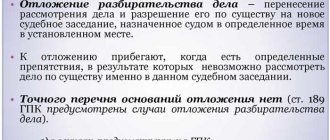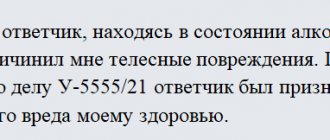Who invites him?
A witness in a civil trial is invited either by the plaintiff or the defendant. But not only. A third party has the right to invite him. Most often, participants in the meeting are invited by the parties.
The legislation gives the court the right to apply procedural coercive measures if a witness fails to appear: arrest, imposition of a fine. In fact, their appearance is ensured entirely by the person who asks to summon them. If the witness does not appear, the judge will inquire about the reasons and continue the process. In civil proceedings, the drive is not used in reality or is used extremely rarely in exceptional cases.
However, depending on the meaning of the testimony, the judge may postpone the case or be satisfied with the testimony of those who have already been questioned earlier.
It is also possible that after studying the already collected materials of the case and the explanations of the parties, the representative of the authority will not postpone the date of the hearing again in order to listen to the witness.
In the case of an appeal hearing, the judge’s refusal to postpone the consideration of the case because of a witness is recognized as legal, unless the reason for failure to appear is considered valid.
Invitation procedure
One of the parties declares a desire to question the witness. The application indicates the information that this person can provide, his full details (full name, place of residence).
The petition for summons may be filed together with the claim or combined in one document. There are also nuances here.
If a request to call a witness in a civil proceeding is indicated in the claim, it is placed in the pleading part.
In what form should I submit my application?
You can submit a separate application addressed to the judge, indicating the case number, which is not entirely convenient. If there are doubts about the impartiality of the representative of the authority, then the document should be submitted in advance through the office. Why? If the request is submitted orally, the only evidence of the request is the minutes of the court hearing. There may simply not be a note about the call in it. Thus, submitting a written application serves as a guaranteed means of recording your request.
And at the appeal stage, the judges will have no doubt that the declaring party really asked to call a witness in the civil process.
And further. If the clause about summoning was present in the application to the court, then you still need to voice your request to the court. This is due to the fact that one of the principles of civil procedure is orality.
Petition to call witnesses
In the __________ district court of __________ __________________________ Plaintiff: __________________________ lives: __________________________ Defendant: __________________________ registered: __________________________ Petition
To ensure confirmation of evidence in the case, I ask you to call to court as witnesses: 1.)__________________________________________________________, 2.)__________________________________________________________, According to Art. 35 of the Code of Civil Procedure of the Russian Federation, Persons participating in the case have the right to familiarize themselves with the case materials, make extracts from them, make copies, file challenges, present evidence and participate in their study, ask questions to other persons participating in the case, witnesses, experts and specialists ; file petitions, including requests for evidence; give explanations to the court orally and in writing; present your arguments on all issues arising during the trial, object to the requests and arguments of other persons participating in the case; appeal court decisions and use other procedural rights provided by the legislation on civil proceedings. Persons participating in the case must conscientiously use all their procedural rights. According to Art. 55 of the Code of Civil Procedure of the Russian Federation, Evidence in the case is information obtained in the manner prescribed by law about the facts, on the basis of which the court establishes the presence or absence of circumstances justifying the demands and objections of the parties, as well as other circumstances that are important for the correct consideration and resolution of the case. This information can be obtained from explanations of the parties and third parties, testimony of witnesses, written and material evidence, audio and video recordings, and expert opinions. According to Art. 69 of the Code of Civil Procedure of the Russian Federation, a witness is a person who may know any information about circumstances relevant to the consideration and resolution of the case. Information provided by a witness is not evidence if he cannot indicate the source of his knowledge. The person applying to call a witness must indicate what circumstances relevant to the consideration and resolution of the case can be confirmed by the witness, and inform the court of his name, patronymic, surname and place of residence. Based on the above and in accordance with Art. Art. 35, 55, 69 Code of Civil Procedure of the Russian Federation: I ask the Court: 1. To call as witnesses: 1.)__________________________________________________________, 2.)__________________________________________________________, I undertake to ensure the appearance of witnesses. _________________ _________________ (signature)
Clarification of rights and responsibilities
A petition to involve a witness in civil proceedings does not mean immediately proceeding to interrogation. First, the new participant in the process is explained his rights and obligations. Especially with regard to criminal liability for false testimony or refusal to give it.
The witness signs the form in his own hand, confirming the explanation of the liability provisions.
When can you apply?
An application to attract witnesses in a civil case can be filed at any stage of the proceedings, up to the removal of the judge to make a decision. However, this should be done only in a situation with newly discovered circumstances. Otherwise, subpoenaing for testimony should be a thoughtful step.
The ideal option is to attach a petition to call witnesses in a civil case to the claim. A timely call will avoid prolongation of the legal process. However, here you need to take into account, first of all, the chosen strategy of behavior.
Witness rights
The rights of a witness in civil proceedings are as follows:
- receiving monetary compensation for the time spent coming to court;
- conducting an interrogation at the place of his stay, in particular due to treatment in a hospital;
- use of notes relating to numerical notes during testimony;
- refusal to testify when required by law.
If the witness lives in the same area where the court is located, then there will be no problems with arrival. If he lives far away, an order for his interrogation is sent to the court at his place of residence. Now the problem of remoteness has begun to be solved in a different way. The questioning of a witness in civil proceedings is carried out using a conference call.
With its help, communication is ensured between two courts, in one of which the witness is physically present, and in the other the trial of the case is being conducted.
Responsibilities of a witness
It should be understood that the witness does not have the right to refuse to testify (except for the cases indicated above). If a witness called to testify does not appear at a court hearing, he faces liability if the judge considers failure to appear without a good reason as an insult to the court. Therefore, when naming the names of witnesses, it is worth being selective.
At the same time, Russian legislation provides for the possibility of giving testimony in writing. For situations in which it is possible to obtain evidence in this format, Art. 69 of the Code of Civil Procedure of the Russian Federation includes cases when a person cannot attend court in person for a good reason. For example, for health reasons due to serious illness or disability.
When appointing witnesses, it is important to remember that their testimony must not only be significant for the case ( Article 56 of the Code of Civil Procedure of the Russian Federation ), but also truthful ( Article 307 of the Code of Criminal Procedure of the Russian Federation ).
Legal refusal to testify
The law specifies a list of persons who cannot be interrogated or interrogation is permitted only if they consent.
The first group includes:
- persons who took part in the case as a representative or defense attorney in criminal proceedings;
- mediators who took part in the reconciliation procedure;
- judges, jurors - regarding issues that were discussed in the deliberation room;
- clergy about the information that became known to them during confession.
The ban operates regardless of the desire of the listed persons to tell the court anything.
Below is a list of those who can testify if they agree:
- deputies about information that became known to them in the course of performing their duties;
- Commissioner for Human Rights in the Russian Federation;
- Commissioner for the rights of entrepreneurs at both the federal and regional levels;
- man in relation to himself;
- spouse against spouse, parents against children, children against parents;
- adopted children and adoptive parents in relation to each other;
- brothers and sisters in relation to each other;
- grandparents and grandchildren in relation to each other.
Interrogation procedure
Witnesses are called and questioned one by one. Before the start of the interrogation, the nature of the relationship between the witness and the parties to the process is clarified. This gives the judge the opportunity to assess whether the testimony is true.
First, the interrogated person is asked to provide all known information about the circumstances of the case.
Next, the plaintiff or defendant, depending on who called the witness, asks questions. The process doesn't end there. Afterwards, the other party is allowed to ask questions. The judge has the right to intervene in the interrogation at any time.
The witness is left in the courtroom. If there are contradictions with the testimony of other persons or with the case materials, a new interrogation is carried out.
The testimony of witnesses in civil proceedings must consist only of information the source of which he can provide. For example, he personally saw what was happening or heard what he was talking about.
If a witness cannot explain exactly where he received the information, it will not be accepted by the court.
Who is a witness
A witness can be any person who has personal knowledge of some event or some significant circumstances of the case. A witness can either be a direct eyewitness to an event or learn about it from other sources. He must tell the court how he knows about the events he is telling. If a witness does not provide the source of his knowledge, his testimony will not be accepted as evidence.
A witness may know the participants in the court session personally, be a relative of one of them, or not know them at all. This does not in any way affect the ability to be a witness in a civil case. The main criterion in this case is the ability of the witness to convey to the court in an accessible and understandable form the information known to him. In this context, it is possible to interview, for example, minor children or persons suffering from a mental disorder who can speak and coherently present information known to them.
Evaluation of indications
Witness testimony can vary widely. There are two reasons for this: either a lie, or a person’s individual perception.
It should be noted that people are brought in only for knowingly false testimony. This means that the witness deliberately distorted real events in his story.
Most often, the testimony does not correspond to what happened due to a number of reasons: anxiety (not every day people come to court, where the atmosphere is not very pleasant), peculiarities of memory, and thinking. In addition, sometimes a lot of time passes between events and the court hearing.
Thus, the judge’s task is to find out how correctly a person perceives reality, whether his memory works well enough, and to what extent he correctly reproduces what he heard and saw.
In the absence of obvious lies in the testimony, the representative of the authority critically evaluates the testimony, motivating and justifying the reasons for its rejection.






